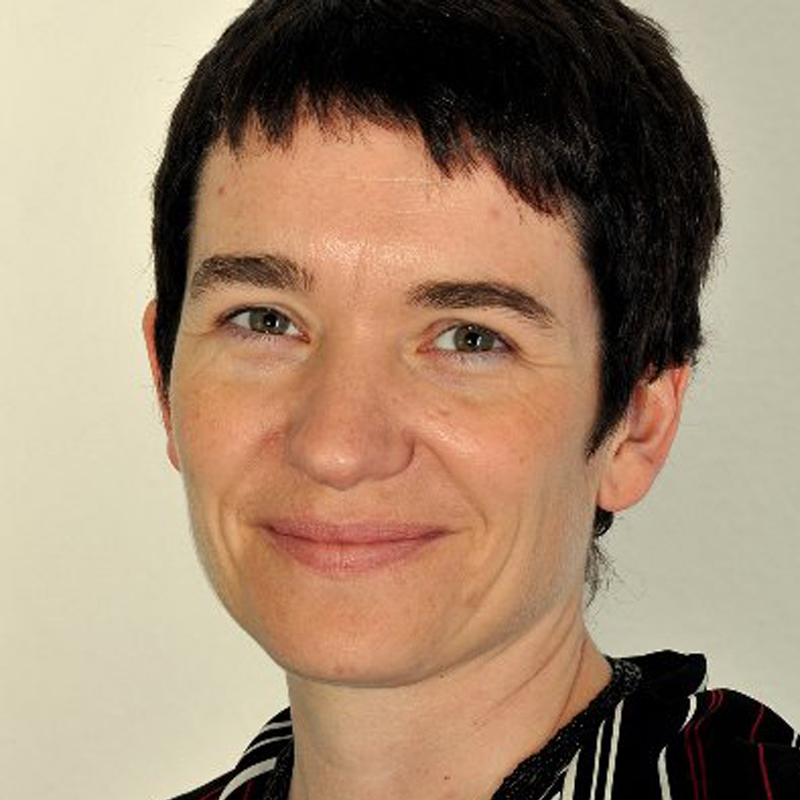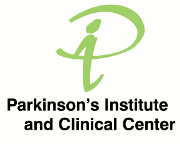Discovering novel genetic variants in Parkinson’s disease for the development of new therapies
The clinical symptoms of Parkinson’s disease are caused by neuronal cell loss in small areas of the brainstem, which leads to symptoms such as uncontrollable tremor, stiffness, slowness of movements and gait problems among others. This common progressive neurodegenerative disorder has currently no curative treatment and its cause is still elusive.
Dr. Birgitt Schuele, Director of Gene Discovery and Stem Cell Modeling at the Parkinson's Institute and Clinical Center developed an innovative model that turns skin cells into stem cells and further coaxes them to become dopaminergic neurons similar to the ones that die in the brains of Parkinson’s patients thereby creating Parkinson’s disease in a culture dish. This enables her to explore the underlying cause of Parkinson’s disease. Using this model, she explores newly discovered genes and variants, identifying novel targets with a goal of discovering new curative therapies. This research lays the foundation for personalized and precision medicine, as well as advancements in regenerative medicine for Parkinson’s disease.
At the Clinical Center of the Parkinson’s Institute, about 10 percent of patients report a positive family history of the disease. Relatives of these patients often want to know, “What’s my genetic risk of developing Parkinson’s disease?” Such questions led to the development of Dr. Schuele’s gene discovery program, in which DNA samples are collected from patients with a positive family history of Parkinson’s disease and their family members. Once a genetic cause is discovered, which is in only 20-30 percent of the families with Parkinson’s disease, Dr. Schuele’s team unravels how these gene mutations lead to pathological changes in the cell that cause neuronal cell loss and Parkinson's disease.
Her program not only identifies genes in Parkinson’s disease patients, but also systematically analyzes whether or not these genetic changes lead to Parkinson’s disease. Rather than testing drugs using animals with substantially different responses, her reprogramming model uses the same genetic background and cells of a human being, and in this case, from the cells of patients themselves.
Current research includes:
Genetics Program and Gene Discovery: Take a Closer Look at the Genes in Parkinson’s Disease - The Clinical Center at the Parkinson’s Institute is treating an estimated 1,500 patients per year. At this point, Dr. Schuele’s team has collected DNA and tissue samples from over 1,500 patients with Parkinson’s and controls including over 200 families with two or more affected relatives with Parkinson’s disease. The overarching goal is to identify new genes or mutations that help us to better understand the factors leading to disease and to possibly genetically categorize patients better for clinical interventions. Moving forward she and her team plan to identify 100-150 additional families making this one of the largest single-center research programs for familial forms of Parkinson’s disease. Unique for these studies is that the team recruits every family through our clinical center so that we have detailed high-quality longitudinal medical information. This is critical for these studies to discern between different forms of parkinsonism, a requirement for the development of personalized medicine.
Stem Cell Modeling Program: ‘Skin in the Game’ for Parkinson’s Disease - When Dr. Schuele and her team identify a particular genetic variant, they know it may cause Parkinson’s disease in a patient, but the underlying cellular mechanisms need to be understood to prove causation and to develop effective therapies. Parkinson’s research has been plagued for decades with the problem of finding the right model system for studying Parkinson’s. This has been a real bottleneck for Parkinson’s research and also new drug development for neurodegenerative disorders. With the discovery of the new technology of “reprogramming” which turns human skin cells into stem cells, Dr. Schuele’s lab has developed a new toolset to be able to accelerate Parkinson’s research by directly working on parkinsonian nerve cells. The team can now culture functional human dopamine producing nerve cells in a petri dish that originated from a patient’s skin sample. One doesn’t have to rely on incomplete pre-clinical models or immortalized cells anymore. This stem cell technology has been clearly a game changer for Parkinson’s research.
Currently, the skin and stem cell bank comprises more than 85 Parkinson’s patient cell lines, is an invaluable resource, and allows her team to study disease mechanisms directly in living cells from an individual with Parkinson’s. This model of Parkinson’s in a dish is likely to be much more reliable and with less failure compared to traditional models. For this ongoing study, they would like to include an additional 50+ samples from patients with novel and new mutations that are largely unknown. They plan to move into new territory, discovering new markers and genes to model Parkinson's disease.
To learn more about modeling Parkinson’s disease in a dish, visit her blog at http://skincellblog.blogspot.com/.
Bio
Dr. Birgitt Schuele, MD, has always been fascinated by neuroscience, curious of how the brain works. She studied medicine at Medical University Lübeck, Germany, and received a doctorate in neurophysiology from the Georg-August University, Göttingen, Germany. Combining her clinical background and her basic science research, Dr. Schuele is motivated to translate her findings into therapeutic approaches. When she discovers new problems in genes, her ultimate goal is discover ways to fix it and improve her patients’ quality of life.
As a resident at Medical University Lübeck in 2000, Dr. Christine Klein, now head of the Institute of Neurogenetics, saw Dr. Schuele’s enthusiasm and invited her to join her lab in Parkinson’s disease genetics. Acting as the blueprint of where Parkinson’s disease begins, genetics is crucial for addressing underlying causes of disease. From 2003-2005, Dr. Schuele completed a post-doctoral fellowship in the genetics department at Stanford University School of Medicine. She studies research on other genetic and congenital disorders such as Prader-Willi Syndrome, Rett Syndrome and Roberts Syndrome. This training helped her to understand the importance of genetics at a deep level and the importance of learning from other genetic diseases to identify common mechanisms. Since coming to the Parkinson’s Institute, Dr. Schuele has greatly expanded her research, building an innovative stem cell program developing novel “disease in-a-dish” models of Parkinson’s disease, using patient-derived induced pluripotent stem cells.
Dr. Schuele founded and currently heads the Neurogenetics and Stem Cell Programs at the Parkinson’s Institute and Clinical Center. She is also serves as the Director of the Brain Donation Program at the Parkinson’s Institute and Clinical Center. Her novel patient-derived DNA and tissue samples are the core and basis for gene discovery, functional phenotype analysis, and biomarker studies.
When she’s not in the lab, Dr. Schuele enjoys running and training for marathons. A patient of hers with Parkinson's disease inspired her to take this challenge and go beyond limits.
In the News
Publications
Awards
Research Fellowship for “Mechanisms of Imprinting in selected genes in Prader-Willi-/Angelman syndrome and myoclonus-dystonia," 2003
Deutsche Forschungsgemeinschaft (DFG, German Research Foundation)
Dean’s Postdoctoral Fellowship for “Knock-down strategy of Pwcr1 small nucleolar RNAs with RNAi to generate models for Prader-Willi syndrome,” 2004
Lynn Marie Chandler Fund, Stanford University
Dean’s Postdoctoral Fellowship for “ Evaluation of the Imprinting status of DLX5 and its alteration by Mecp2 deficiency,” 2005
Lynn Marie Chandler Fund, Stanford University
Research Fellowship, 2008
Michael J. Fox Foundation
Groundbreaking Award, Parkinson’s Story, 2013
Life Technologies


